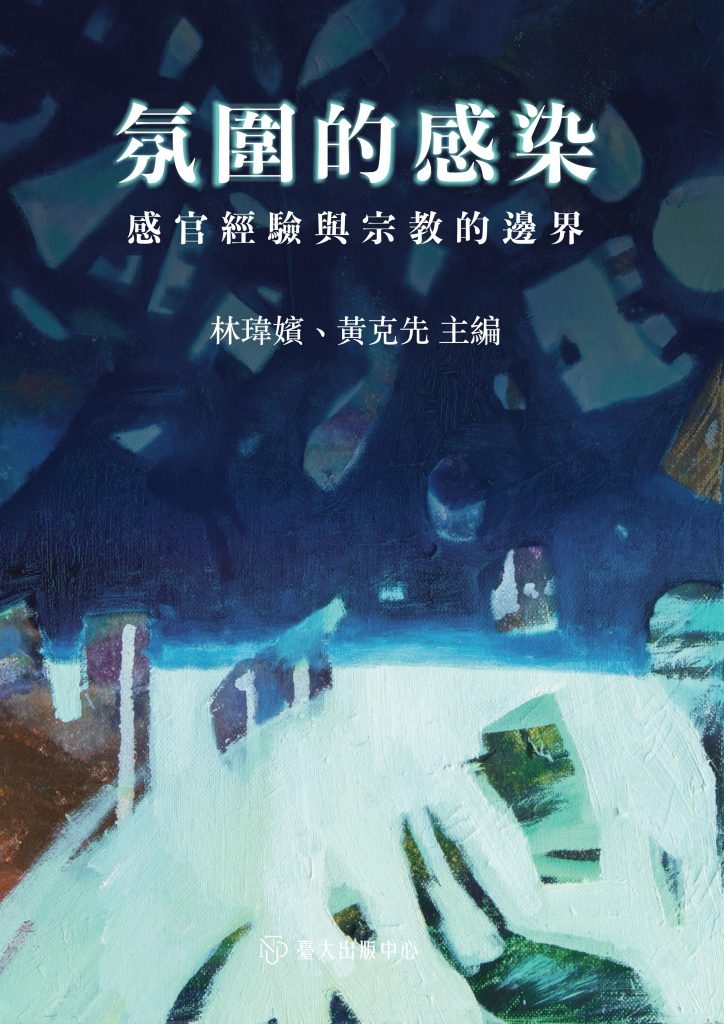Wei-ping Lin(林瑋嬪)
Position: Professor, Director of the Research Institute for the Humanities and Social Sciences, National Science and Technology Council
Research Expertise: Anthropology of Religion, Imagination and Island Studies, Han Chinese
Profile
Education: Ph.D., Cambridge University (1998)
Positions held: Deputy Dean, College of Liberal Arts, National Taiwan University
Chair of Department of Anthropology, National Taiwan University
Editor of Cambridge Taiwan Studies Series
Visiting Scholar, Harvard-Yenching Institute (2005-6, 2017-8)
Visiting Scholar, Harvard-Fairbank Center (2012-3)
Executive Board of Directors, Society for the Study of Chinese Religions (2011-6 )
Post-doctoral Research, Academia Sinica (1999)
Academic Honor: Outstanding Research Award, National Science Council, Taiwan (2024)
Academia Sinica Scholarly Monograph Award in the Humanities and
Social Sciences(2023)
Academia Sinica Scholarly Monograph Award in the Humanities and
Social Sciences(2016)
Contacts
E-mail: wplin@ntu.edu.tw
Office: Room 406, Department of Anthropology, Administration Building, Shuiyuan Campus
TEL: (02)3366-4737
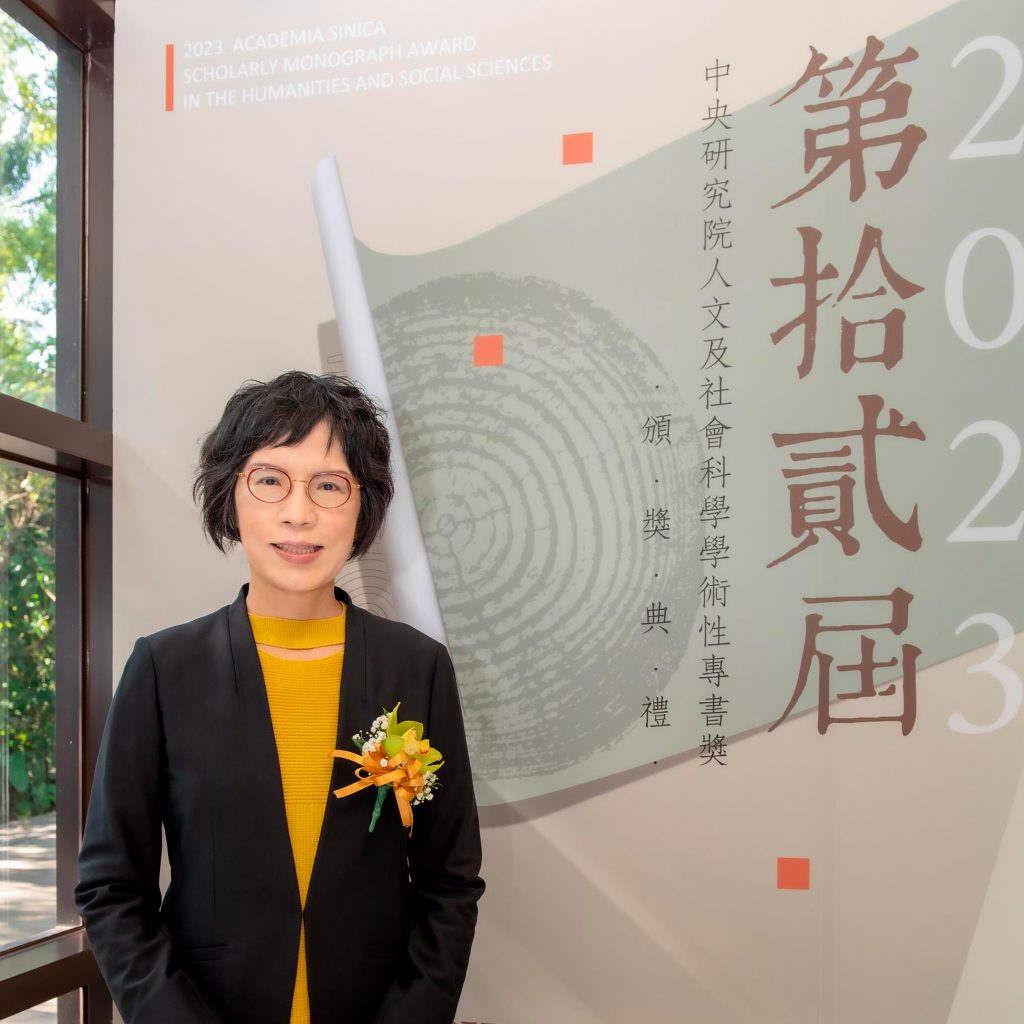
Monograph
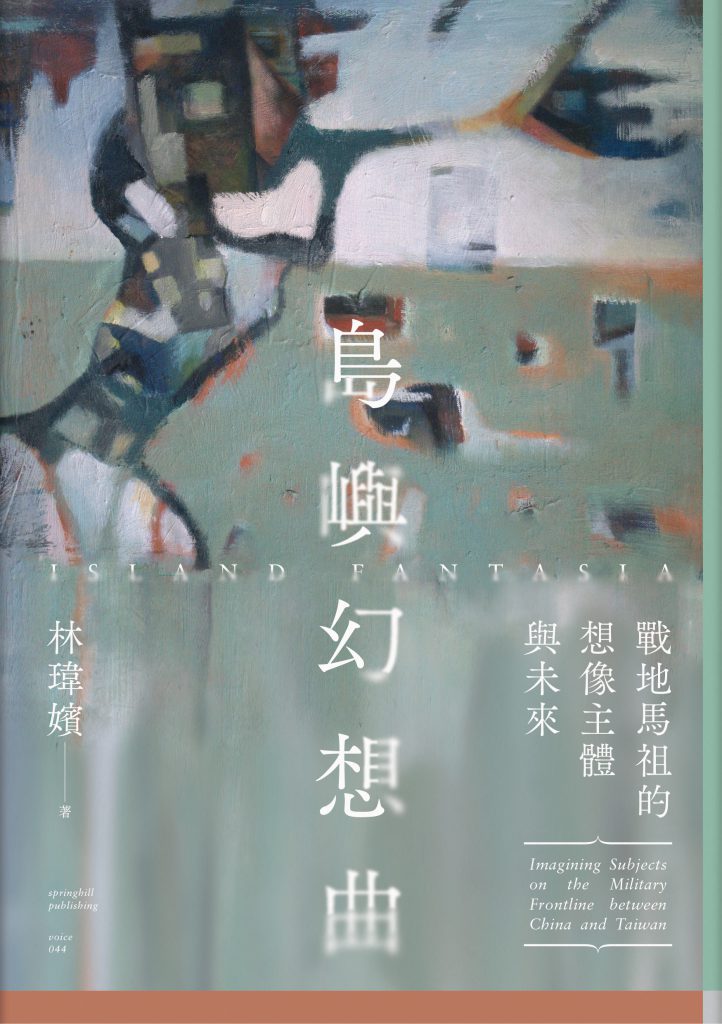
「同島一命」是今日臺灣耳熟能詳的團結抗疫口號,事實上這句精神標語早在半世紀前已經出現,廣泛分布在我們熟悉卻又陌生的馬祖列島──熟悉於它地理上的存在,陌生於其他所有一切。
本書是第一部馬祖民族誌。本書作者林瑋嬪不採冷戰框架由上而下俯瞰馬祖,改採由下而上的視角,引領我們貼近馬祖人的生活世界與內心感受。
在歷史中很長一段時間,馬祖列島只是散落在中國東南沿海的島嶼,卻因美蘇冷戰與臺海兩岸衝突,一夕之間變成前線戰地,被迫接受軍事統治。然而,當軍事統治於一九九二年結束,擺脫戰地身分的島嶼反而面臨邊陲化的危機,以致馬祖人對於未來應走向何方,一直感到困惑憂慮。
林瑋嬪二○○六年首度造訪馬祖,此後十餘年多次前往進行深入田野調查,思考馬祖人在當代如何重新認識自我與想像島嶼的未來。她以極富畫面的文筆,生動描繪馬祖從早期漁村時代、二十世紀軍管時期,到二十一世紀今日的樣貌;其中,「以小搏大」和「想像」為貫穿全書的核心概念,作者細密分析二者如何在歷史中形成演變,並且持續影響島上人們的行動。
全書分為三個部分。第一部回顧島嶼歷史,介紹一九四九年前與後馬祖社會文化的巨大轉變,並揭示賭博之於馬祖的特殊意義。第二部探討新媒體技術(網路)引進馬祖後,對於建立馬祖想像共同體的重要性。第三部討論解嚴後馬祖人對島嶼未來提出的各種想像(跨海進香、博弈計畫),以及想像之間呈現的世代差異。
臺灣和馬祖處境相似,身為夾處於強權間的島嶼,每當地緣政治發生變化,都必須快速因應,重新定位,設法增強乃至創造與世界的連結。因此,馬祖的故事,就是臺灣的故事;馬祖人的嘗試與努力,值得臺灣思索借鏡。
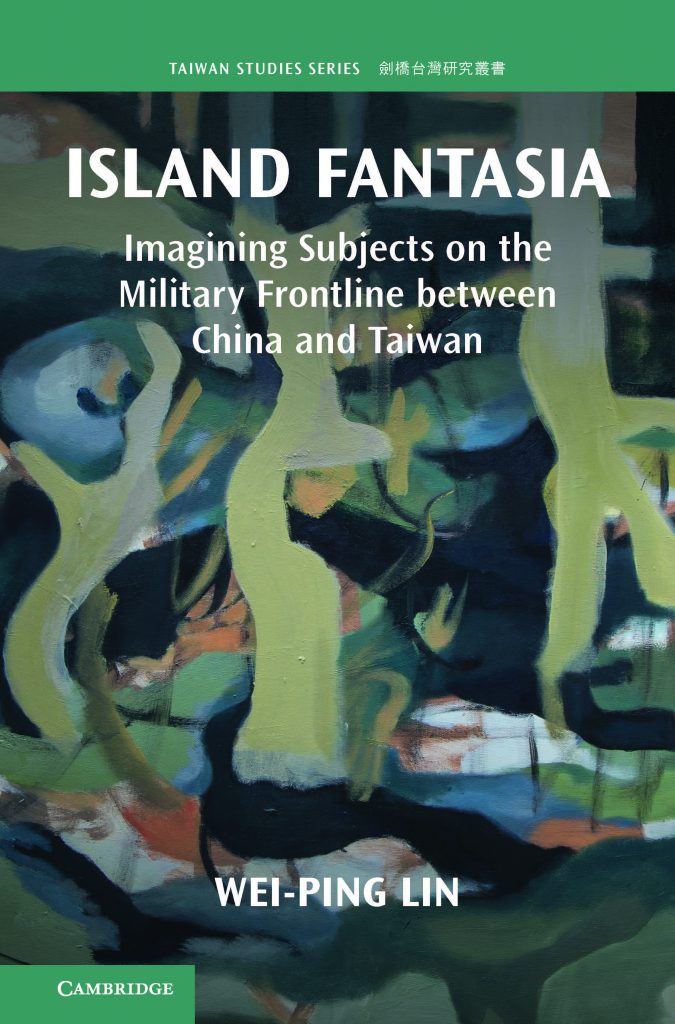
2021
Island Fantasia: Imagining Subjects on the Military Frontline between China and Taiwan. Cambridge: Cambridge University Press.
Open Access: https://www.cambridge.org/core/books/island-fantasia/D2F22090288A3E1F15DEBDD2735F5868
Academia Sinica Scholarly Monograph Award in the Humanities and Social Sciences(2023)
The Matsu archipelago between China and Taiwan, for long an isolated outpost off southeast China, was suddenly transformed into a military frontline in 1949 by the Cold War and the Communist–Nationalist conflict. The army occupied the islands, commencing more than 40 long years of military rule. With the lifting of martial law in 1992, the people were confronted with the question of how to move forward. This in-depth ethnography and social history of the islands focuses on how individual citizens redefined themselves and reimagined their society. Drawing on long-term fieldwork, Wei-Ping Lin shows how islanders used both traditional and new media to cope with the conflicts and trauma of harsh military rule. She discusses the formation of new social imaginaries through the appearance of “imagining subjects,” interrogating their subjectification processes and varied uses of mediating technologies as they seek to answer existential questions.
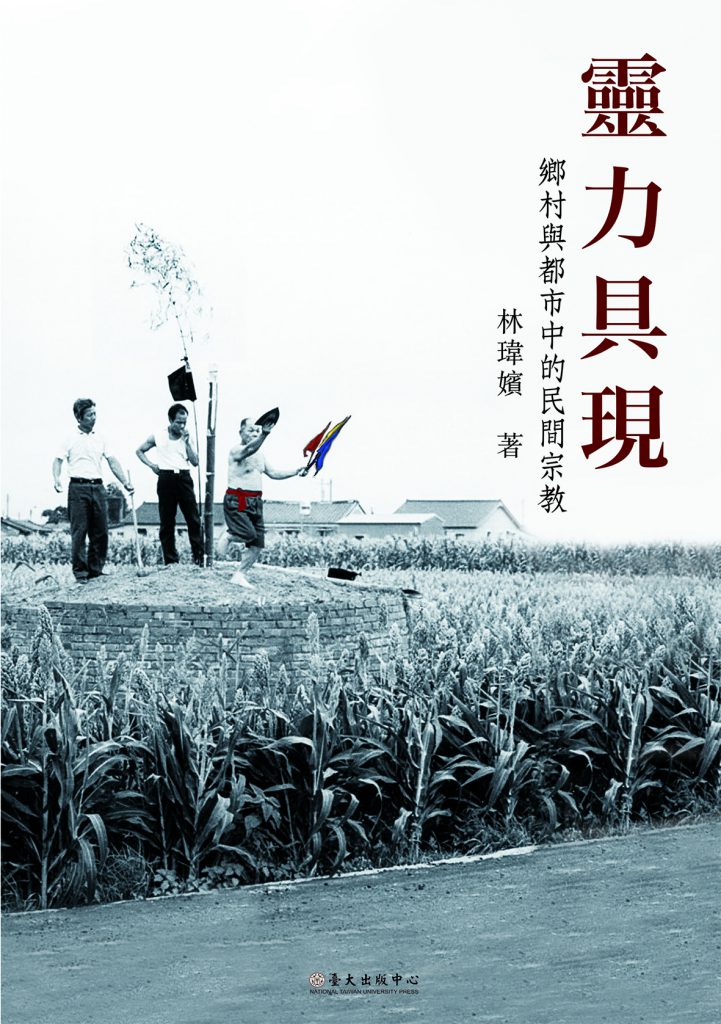
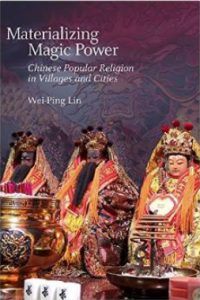
2015
Materializing Magic Power: Chinese Popular Religion in Villages and Cities. Cambridge, MA. : Harvard University Asia Center.
(link to publisher webpage: Harvard University Press)
Academia Sinica Scholarly Monograph Award in the Humanities and Social Sciences(2016)
My research interests are in kinship, religion and issues of place and space among the Han Chinese in Taiwan. Religious aspects in particular are the main foci and include religious change, healing cults, and sacred objects (god statues). I am now carrying out research in a military base on an off-shore island in Taiwan. De/militarization, violence, and the state will be the issues I will study in the future.
| 2021 | Island Fantasia: Imagining Subjects on the Military Frontline between China and Taiwan. Cambridge: Cambridge University Press. |
| 2020 | 《靈力具現:鄉村與都市中的民間宗教》。臺北:臺大出版中心 |
| 2015 | Materializing Magic Power: Chinese Popular Religion in Villages and Cities.Cambridge, MA.: Harvard University Asia Center. |
| 2022 | 《氛圍的感染:感官經驗與宗教的邊界》。臺北:臺大出版中心。 |
| 2018 | 《媒介宗教:音樂、影像、物與新媒體》。臺北:臺大出版中心 |
| 2018 | 「〈「與人類學共舞」專號導言〉,《考古人類學刊》88: 1-8。 |
| 2016a | 〈「網路•人類學」(一)專號導言〉,《考古人類學刊》85: 1-15。 |
| 2013 | 〈「文明之路」書評導言〉,《考古人類學刊》78: 143-6 |
| 2009 | 〈「經歷巨變:戰火下的島嶼及其未來」專號導言〉,《考古人類學刊》71: 1-6。 |
| 2022 | “Parallel Pilgrimage: Reflections on the Space/Time of Shrines,” in Comparative Studies in Society and History. (with Bruce Grant, Azfar Moin, Catherine Wanner, Ismail Alatas, and Michael Low) |
| 2022 | 〈導論:氛圍的感染〉,刊於《氛圍的感染:感官經驗與宗教的邊界》,頁1-35,林瑋嬪與黃克先主編。臺北:台大出版中心。(與黃克先合著) |
| 2022 | 〈氛圍道教:轉型中的台灣當代安龍送虎儀式〉,刊於《氛圍的感染:感官經驗與宗教的邊界》,頁107-45,林瑋嬪與黃克先主編。臺北:台大出版中心。(與楊秀娟合著) |
| 2018 | 〈導論:媒介宗教〉,刊於《媒介宗教:音樂、影像、物與新媒體》,頁1-30,林瑋嬪主編。臺北:台大出版中心。 |
| 2018 | 〈跨越界線:LINE 與數位時代的宗教〉,刊於《媒介宗教:音樂、影像、物與新媒體》,頁267-301,林瑋嬪主編。臺北:台大出版中心。 |
| 2018 | “Mother Ghost Seeks a Human Son-in-Law: Ghost Shrines in Taiwan,”Magic, Ritual, and Witchcraft 13(2): 190-211. |
| 2017 | “Why Build a Temple? The Materialization of New Community Ideals in the Demilitarized Islands between China and Taiwan”, Material Religion 13(2): 131-155. |
| 2016 | 〈線上馬祖:網路社群與地方想像〉,《考古人類學刊》85: 17-50。 |
| 2015 | 〈都市神壇與乩童靈力:桃園八德的例子〉,刊於《日常生活中的當代宗教:宗教的個人化與關係性存有》,頁187-233,黃應貴主編。台北:群學。 |
| 2015 | 〈仙姑、台商與廟宇經理人:新時代的廈門土地公廟〉,《考古人類學刊》82: 27-60。(與張文玉合著) |
| 2015 | 〈「比兄弟姊妹咯卡親」:移民、都市神壇與新類型的家〉,刊於《21世紀的家:台灣的家何去何從?》,頁205-48,黃應貴主編。台北:群學。 |
| 2014 | “Virtual Recentralization: Pilgrimage as Social Imaginary in the Demilitarized Islands between China and Taiwan”, Comparative Studies in Society and History 56 (1): 131-54. |
| 2013 | 〈汉人亲属概念重探:台湾农村的例子〉,刊于《中日家族研究》,页345-97,首藤明和等人主编。杭州:浙江大学出版社。 |
| 2013 | 〈馬祖莒光花蛤節:邊境島嶼如何探索未來〉,《民族學研究所資料彙編》23: 179-206。(與曹以勳合著) |
| 2013 | 〈為何要建廟?從廟宇興建的物質化過程探討馬祖社群再造〉,《台灣社會研究季刊》92: 1-33。 |
| 2012 | “Son of Man or Son of God? The Spirit Medium in Chinese Popular Religion”, in Affiliation and Transmission in Daoism, p. 249-75. ed. by Florian C. Reiter. Germany: Harrassowitz Verlag. |
| 2012 | 〈人類学と道教研究の対話–台湾における除穢儀式の事例から〉,《社会学雑誌》29: 7-30。(日本神戶大學出版) |
| 2012 | 823馬祖人為土地上街頭:網路與社會運動初探,《民族學研究所資料彙編》。(王惇蕙合著) |
| 2011 | 〈「鬼母找女婿」:鬼、三片壁、與貪婪的研究〉, 《考古人類學刊》75: 13-36. |
| 2011 | “Boiling Oil to Purify Houses: A Dialogue between Religious Studies and Anthropology”, in Exorcism in Daoism: A Berlin Symposium, p. 151-70. ed. by Florian Reiter, Asien- und Afrika-Studien der Humboldt-Universität zu Berlin, Vol. 36. Wiesbaden, Germany: Harrassowitz Verlag. |
| 2010 | 〈人類學與道教研究的對話:以「煮油」除穢儀式為例〉,《考古人類學刊》73: 149-174。 |
| 2009 | 〈邊陲島嶼再中心化:馬祖進香的探討〉,《考古人類學刊》71: 71-91。 |
| 2009 | 〈「風水寶地」的出現:移民與地方再造〉, 刊於《空間與文化場域:空間之意象、實踐與社會的生產》,頁 299-334.,黃應貴主編,台北:漢學研究中心。 |
| 2009 | “Local History through Popular Religion: Place, People and Their Narratives in Taiwan”, Asian Anthropology 8:1-30. |
| 2008 | “Conceptualizing Gods through Statues: A Study of Personalization and Localization in Taiwan”, Comparative Studies in Society and History 50(2):454-477. |
| 2007 | 〈区域•结构•秩序: 历史学与人类学的对话〉,《文史哲》5: 7-22。(与多人合着) |
| 2005 | 〈台灣廟宇的發展:從一個地方庄廟的神明信仰、企業化經營以及國家文化政策談起〉,《國立台灣大學考古人類學刊》62: 56-92。 |
| 2003 | 〈台灣漢人的神像:談神如何具象〉,《台灣人類學刊》1(2): 117-150。 |
| 2002 | 〈血緣或地緣?臺灣漢人的家、聚落與大陸的故鄉〉,刊於《「社群」研究的省思》,頁93-151,陳文德、黃應貴主編,中央研究院民族學研究所出版。 |
| 2001 | 〈漢人「親屬」 概念重探:以一個台灣西南農村為例〉,《中央研究院民族學研究所集刊》90: 1-38。 |
| 2000 | 〈人觀、空間實踐與治病儀式:以一個台灣西南農村為例〉,《國立台灣大學考古學刊》56: 44-76. |
| 1998 | Kinship and the Concept of the House in a Taiwanese Village. PhD thesis, University of Cambridge. |
| 1991a | 〈祖家與卑南族宗教變遷〉,《人類與文化》26: 6-11,國立台灣大學出版。 |
| 1991b | 〈火樹銀花耀通霄──鹽水蜂炮儀式分析〉,國立台灣大學人類學研究所碩士論文。 |
| 2011 | “The Lady of Linshui: A Chinese Female Cult. Brigitte Baptandier. Stanford: Stanford University Press, 2008. 374pp.”, The Journal of Religion 91(1): 103-105. |
| 2010 | 〈臨水夫人:一個漢人女性的儀式〉,《台灣人類學刊》8(2): 143-5. |
| 2020 | 〈從鄉村到都市的民間信仰轉變〉,中央廣播電台,2020-08-01。 |
| 2010 | 〈銀幕上的人類學家〉,中國時報時論廣場A24版,中華民國99年2月5日。 |
| 2023 | 〈科技與氛圍:臺灣宗教的現代發展〉,臺灣代天巡狩文化青年研究者論壇與柳營代天院遊王公信仰暨民俗工作坊。2023年11月19日。 |
| 2023 | 〈人類學的田野調查〉,石碇田野調查工作坊,政治大學新聞系。2023年11月15日。 |
| 2023 | 〈幽靈基礎設施:海洋技術政治與馬祖大橋〉,國科會人社中心論壇《基礎設施與當代世界》,2023年11月11日。 |
| 2023 | 〈馬祖的故事,台灣的縮影:島嶼的想像與未來〉,陽明交通大學人文社會學系族群與文化碩士班,2023年11月1日。 |
| 2023 | 〈《島嶼幻想曲》新書介紹〉, 近代中國與東亞研究群,2023年10月5日。 |
| 2023 | 〈懸置的橋樑:技術、政治與馬祖大橋〉,人類學年會,2023年9月23日。 |
| 2023 | 〈馬祖的故事 臺灣的縮影〉,國立馬祖高級中學。2023年9月15日。 |
| 2023 | “Book Talk” Island Fantasia: Imagining Subjects on the Military Frontline between China and Taiwan. Center of Taiwan Studies. University of Washington, Seattle. Wednesday, Mar 1. |
| 2022 | 〈為神明「開路」:基礎設施與想像臺北新松山〉,中研院史語所基礎設施讀書會。2022年12月5日。 |
| 2022 | 〈氛圍道教:道教實踐與研究的新路徑〉,輔仁大學 「宗教地景、療癒與社會」 標竿計畫辦公室。2022年11月18日。 |
| 2022 | 〈無處不在又處處不在:當代宗教樣貌的探索〉,輔仁大學宗教學系。2022年10月25日。 |
| 2022 | 〈民間宗教的奇幻旅程──從鄉村、都市到數位世界〉,2022台北國際書展講座,2022年6月7日。 |
| 2022 | 〈現在,我們在那裡遇見神?〉,2022台北國際書展講座,2022年6月6日。 |
| 2022 | “Magic Power Reconfigured: Chinese Popular Religion in Cities”, BRINFAITH Public Lecture Series. Hong Kong University. May 25, 2022. |
| 2022 | 〈為神明「開路」:基礎設施與想像臺北新松山〉,中興大學歷史學系。2022年5月10日。 |
| 2022 | “Book Talk” Island Fantasia: Imagining Subjects on the Military Frontline between China and Taiwan. Taiwan Studies. University of California, San Diego. Friday, April 29. |
| 2022 | 〈想像的主體與未來:媒介技術舆馬祖島嶼意像〉,台灣大學社會系。2022年4月14日。 |
| 2022 | Mediating Individual and Social Imagination: Media Technology and Online War Memory. Online Book Talk given at SOAS, University of London. March 15. |
| 2021 | 〈用LINE問神也可以:民間信仰在數位時代的轉向〉,清華大學人文社會學院學士班。2021年12月9日。 |
| 2021 | 〈神明走在都市中:移民與宗教研究〉,政治大學民族系學生會。2021年11月29日。 |
| 2021 | 〈島嶼幻想曲:戰地馬祖的想像主體與未來〉,清華大學人社院,2021年11月12日。 |
| 2021 | 〈Island Fantasia 國際新書發表會〉。科技部人社中心線上會議。2021年11月9日。 |
| 2021 | 〈道與藝之間:氛圍道教與當代安龍送虎儀式〉,學實學校線上講座2021年9月25日。 |
| 2021 | 〈從結構意義到氛圍媒介:轉型中的台灣安龍謝土儀式〉,政治大學華人宗教研究中心。2021年4月19日。 |
| 2020 | 〈道士力量的構成:台灣北部三個正一道壇的比較初探〉,世界宗教博物館,2020年12月28日。 |
| 2020 | 〈想像的主體與未來:博弈與戰地馬祖〉,中研院民族所,2020年2月24日。 |
| 2019 | 〈用LINE問神也可以:民間信仰在數位時代的轉向〉,財團法人中華民俗藝術基金會,2019年7月27日。 |
| 2018 | Gambling and the State in the Militarized islands between China and Taiwan. A talk given at Harvard-Yenching Institute. Harvard University. Apr 13. |
| 2018 | Gender, Gambling, and the State in the Militarized islands between China and Taiwan. Invited talk at the Lieberthal-Rogel Center for Chinese Studies. University of Michigan. Apr 3. |
| 2018 | Crossing the LINE to the Digital Era: Chinese Popular Religion in Transition. Paper presented in “The Rise of New Religions in Asia,” Boston University. Mar 19-20. |
| 2017 | Mother Ghost Seeks a Human Son-in-Law: Ghost Shrines in Taiwan. Paper presented in “Mediating Religion: Text and Object in Chinese Religion,” Harvard Fairbank Center, Dec 8. |
| 2017 | 〈從通靈少女、神算到宗教人類學〉,教育部高中人社班專題討論,2017年 7月 5日。 |
| 2017 | Crossing the LINE to the Digital Era: Chinese Popular Religion in Transition. Paper presented in “Religion in City Space and Cyberspace,” National Taiwan University, June 29. |
| 2016 | 〈網路宗教的崛起:從鄉村、都市到數位時代〉,政治大學宗教學研究所,2016年12月7日。 |
| 2016 | War Memories in China Studies. Critical Dialogues about China. The University of Hong Kong. Apr 29. |
| 2016 | Online Creation of War Memory: The Denial and Pursuit of Matsu and Subjectivity in The Childhood of Leimengdi. Paper presented in Inaugural Nexus Taiwan Conference, “Repositioning Taiwan and the Americas: Formosa to the Present,” Brown University, Apr 9. |
| 2015 | 〈宗教、物質文化與區域想像〉,台灣大學台灣文學研究所。 2015年12月25日。 |
| 2015 | 〈靈力的具象:鄉村與都市裡的民間宗教〉,中央研究院民族學研究所。 2015年12月21日。 |
| 2015 | Where is Goddess Mazu Buried? Mapping a Golden Triangle between China, Taiwan, and the Mazu Islands. Paper presented in AAS-in-Asia. Taipei, June 24. |
| 2015 | Materializing Magic Power: Chinese Popular Religion in Villages and Cities 新書發表會。臺灣宗教學會2015年會。國立政治大學宗教學研究所主辦。2015年6月15日。 |
| 2015 | Reconfiguring the Magic Power of Spirit Medium: An Urban Shrine in Northern Taiwan. Paper presented in AAS, Chicago, Mar 26-29. |
| 2014 | 〈都市神壇與乩童靈力:從鄉村到都市的變遷〉,輔仁大學,2014年11月10日。 |
| 2014 | 〈大地 (Earth):年印巴分治下的宗教族群與情感衝突〉,發表於「戰爭隱喻、生命、書寫」國際研討會,中央研究院文哲所主辦,2014年10月31日。 |
| 2014 | 〈都市神壇與乩童靈力:台灣北部的例子〉,廈門大學,2014年7月7日。 |
| 2014 | Why Build a Temple? The Materialization of New Community Ideals in the Demilitarized Islands between China and Taiwan. Paper presented in AAS, Philadelphia, Mar 27-30. |
| 2014 | 〈都市神壇與乩童靈力:桃園八德的例子〉,發表於「新興宗教與宗教性」學術研討會,清華大學人社院主辦,2014/2/28-3/2。 |
| 2014 | A Dialogue between Daoism and Anthropology: A Study of Purification Ritual in Taiwan. Paper presented at the National Taiwan University-University of Tsukuba Joint Faculty Conference (Humanities session), Feb 22, 2014. |
| 2013 | Thicker than Blood: How an Urban Shrine is Reshaping Migrants’ Lives in Northern Taiwan. Invited Talk at Trinity University, San Antonio. Nov 21, 2013. |
| 2013 | “Goddess Mazu Was Buried in the Mazu Islands”: Imagining the Future of the Demilitarized Islands between China and Taiwan. Invited talk at The Society for Chinese Religions, AAS. San Diego, Mar 23, 2013. |
| 2013 | Conceptualizing Gods through Statues: A Study of Personification and Localization in Chinese Popular Religion. Invited talk at The Society of Fellows in The Humanities, Columbia University. Mar 14, 2013 |
| 2013 | “Goddess Mazu Was Buried in the Mazu Islands”: Imagining the Future of the Demilitarized Islands between China and Taiwan. Paper presented at The Seminar on “Margins as Centers and Centers as Margins. Fairbank Center, Harvard University. Feb 2, 2013. |
| 2012 | Thicker than Blood: How an Urban Shrine is Reshaping Migrants’ Lives in Northern Taiwan. Paper presented at The Seminar on “Urban Religion in China and Taiwan,” Fairbank Center, Harvard University. Dec 14, 2012. |
| 2012 | 〈漢人民間信仰與物質文化: 人類學的觀點〉,發表於「文學藝術與物質文化研究」圓桌論壇。台北:福華文教會館,2012/10/22。 |
| 2012 | Thicker than Blood: Migration, Kinship, and an Urban Shrine in Northern Taiwan. Invited talk at Kobe University. July 13, 2012. |
| 2012 | 〈「比兄弟姊妹咯卡親」:移民、親屬、與都市神壇研究〉,發表於「什麼是家?」學術研討會,中央研究院民族學研究所主辦,2012/7/3-5。 |
| 2012 | 〈為何要建廟?從廟宇興建的物質化過程探討當代社群的浮現〉,發表於第四屆漢學會議論文,中央研究院主辦,2012/6/20。 |
| 2012 | 〈『網路候選人』:以馬祖縣長與立委選舉為例〉,發表於「文院之春:國立台灣大學文學院101年邁頂計畫研究成果發表會」,台灣大學文學院主辦,2012/3/29-30。 |
| 2011 | Son of Man or Son of God? Spirit Medium in Chinese Popular Religion. Invited talk at Fairbank Center, Harvard University. Nov 10, 2011. |
| 2011 | 〈邊陲島嶼再中心化:馬祖到大陸的進香〉,廈門大學,2011年7月23日。 |
| 2011 | Son of Man or Son of God? Spirit Medium in Chinese Popular Religion. Paper presented at The Symposium on “Affiliation and Transmission in Daoism”, Humboldt University, Berlin, Germany. June 27-9, 2011. |
| 2011 | Ghost Mother Wants a Son-in-law: Person, Place, and Human Greed in Taiwan. Paper presented in AAS, Honolulu, Hawai’i, Mar 28-Apr 3. |
| 2010 | Virtual Recentralization: Pilgrimage in the Demilitarized Islands between China and Taiwan. Paper presented in International Conference on Asian-Pacific Societies in Changing Times: Anthropological and Archaeological Perspectives, Taipei, Dec 3-4. |
| 2010 | Ghost Mother Wants to Get a Son-in-law: Person, Place, and Human Greed in Taiwan. Paper presented in AAA, New Orleans, Nov 17-21. |
| 2010 | 〈為何要建廟?從廟宇興建的物質化過程探討當代社群的浮現〉,發表於「第三屆宗教研習營:台灣民間宗教與教派」,國立政治大學宗教學研究所主辦,2010/7/11~15日。 |
| 2010 | Pilgrimage as Bridge:Transcending Peripheralization in the De-militarized Islands between Taiwan and China. Paper presented in AAS, Philadelphia, Mar 25-28. |
| 2010 | Pilgrimage as Bridge:Transcending Peripheralization in the De-militarized Islands between Taiwan and China. Paper presented at “Below the Storm: 60 Years of Cross-Strait Relations”, Conference at the Institute of Political Science, Academia Sinica Feb 5-6, 2010. |
| 2009 | Cooking Oil to Purify Houses (zhuyou jingwu): a Dialogue between Religious Studies and Anthropology. Paper presented at The Symposium on “Exorcism in Religious Daoism”, Humboldt University, Berlin, Germany. Dec 8-9, 2009. |
| 2009 | 〈新式進香:邊陲島嶼的再中心化〉,發表於「台灣漢人民間宗教研究:理論與方法」國際研討會,中央研究院民族學研究所,2009/11/27~28。 |
| 2009 | From Place of Origin to Treasure Trove: Migration and Images of Homeland in Taiwan. Paper presented at The Conference on Dynamics and Diversity of ‘Local World’ in East Asia, Kobe University, Japan, Nov 21, 2009. |
| 2009 | 〈來自邊緣的聲音:蓋房子做為批評〉,發表於「人類學與人群的遷徙與重構:國立台灣大學人類學系慶祝成立六十週年國際會議」, 2009年11月13-14日。 |
| 2009 | Panel discussion on “Culture and Business: Reconfiguring Boundaries and Reproducing Relations”, in SEAA at The Institute of Ethnology, Academia Sinica, July 3, 2009. |
| 2009 | Why Build a Temple? The Materialization of Community Ideals in the Mazu Islands, Taiwan”, Paper presented at SEAA at The Institute of Ethnology, Academia Sinica, July 3, 2009. |
| 2009 | Migration and the Imaginations of Homeland in Taiwan. Paper presented at The Workshop on Comparative Studies of Communities in Japan and China at Hong Kong University, May 7-9, 2009 |
| 2009 | Why Build a Temple? The Predicament and Breakthrough of Community Development Project in Mazu Islands, Paper presented in the forum on Material Memory and Cultural Heritage: Cross Cultural Comparisons, National Taiwan University, Apr 3, 2009 . |
| 2008 | Chinese “Kinship” Reconsidered: Personhood and the House in Rural Taiwan. Paper presented in The Workshop on Comparative Studies of Chinese and Japanese Families at Hong Kong Univeristy. Sep 18-20, 2008. |
| 2008 | Local History through Popular Religion: Place, People and Their Narratives. Paper presented in the Workshop on Local History in China, Harvard University, May 29-31, 2008. |
| 2008 | Imagining Homeland: From Place of Origin to Treasure Trove. Paper presented in AAS, Atlanta, Apr 3-6, 2008 |
| 2008 | 〈想像故鄉: 從出生地到藏寶庫〉,發表於空間移動的文化研究研討會,漢學研究中心舉辦,2008年3月 |
| 2007 | Rethinking religious change: deities, place, and people in Taiwan. Paper presented in AAS, Boston, Mar 22-5, 2007. |
| 2006 | The conceptualization of god through icon in Taiwan: personification and localization. Paper presented in Harvard-Yenching Institute International conference, Harvard University, June 2-4, 2006. |
| 2005 | 〈想像『故鄉』:談區域再結構中的地景變遷〉,發表於中研院民族所「區域再結構與文化再創造:一個跨學科的整合研究」研討會。 |
| 2002 | 〈神的具象化:談台灣漢人的神像與乩童〉,發表於物與物質文化研討會,中研院民族所於東勢林場舉辦。 |
| 2000a | 〈血緣或地緣?台灣漢人的家、聚落與大陸的故鄉〉,發表於中央研究院民族學研究所「社群」研討會。 |
| 2000b | 〈風水是什麼?一般人的觀點〉,發表於儀式親屬與社群小型學術研討會 ,中研院民族所「亞洲季風高地與低地的社會與文化」主題計畫與清大人類學研究所合辦。 |
| 1999 | 〈人觀與治病儀式:以一個台灣西南農村為例〉,發表於國立台灣大學人類 學系五十週年系慶學術研討會,國立台灣大學人類學系主辦。 |
